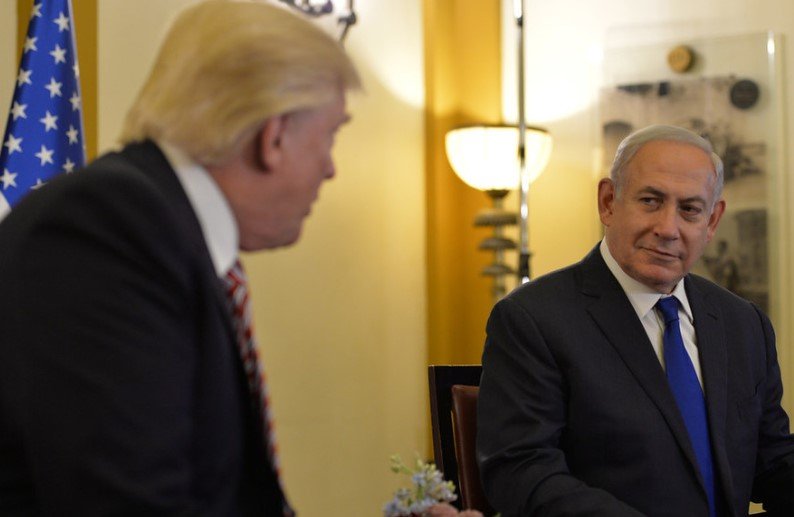In just one month back at the White House, Donald Trump has already made waves abroad. His approach to the Middle East, especially Israel and Gaza, is drawing sharp praise, fierce criticism, and even biblical comparisons.
Whether he’s being likened to ancient Persian kings or condemned for stoking tensions, one thing’s clear—Trump isn’t wasting time.
A First Month Like No Other
It’s barely been 30 days since Trump took the oath as the 47th president, and already, his moves in the Middle East are reshaping the conversation.
While most presidents spend their first weeks getting their cabinets confirmed or adjusting to office, Trump hit the ground running—just like he did in 2017. But this time, there’s more fire under his feet. The October 7 Hamas massacre during Biden’s term shifted the entire global calculus around Gaza and Israel. Trump didn’t just inherit a conflict—he stepped into an ongoing powder keg.
Channeling Cyrus and Darius? Israelis Seem to Think So
In Jerusalem, something unusual is happening. Posters of Trump are showing up again—this time not just as an ally, but as a kind of modern biblical figure.
The comparisons? Persian kings Cyrus and Darius. Why? Because those kings, according to Jewish tradition, helped restore the Jewish people to their land.
Three big things Trump has done are fueling this vibe:
-
He reinstated sanctions on Iran immediately, targeting oil exports and key financial sectors.
-
He cut off U.S. humanitarian aid to Gaza unless full transparency on its use was given—something critics call cruel but allies call “common sense.”
-
He reaffirmed U.S. support for an undivided Jerusalem, visiting the region’s leaders within his first 21 days.
Religious leaders in Israel have praised him openly. Right-wing politicians there are even calling for a new U.S.-Israel defense pact in Trump’s name.

Biden’s Shadow Still Hangs Over Gaza
The Trump team has wasted no time painting the prior administration as the enabler of Hamas and Hezbollah.
In speeches and press conferences, Trump and his top aides are repeating one key argument: that Biden’s decision to re-engage with Iran—via eased sanctions and indirect diplomacy—pumped money straight into terror networks. The argument? That this empowered the October 7 attacks.
Here’s a quick comparison that’s been circulating conservative circles:
| Issue | Under Trump (45) | Under Biden |
|---|---|---|
| Iran Sanctions | Maximum Pressure | Partial Relaxation |
| Gaza Aid Flow | Frozen or Conditional | Resumed via UNRWA |
| Hezbollah Activity | Contained | Expanded to Syria |
| Red Sea Terror Threats | Minimal | Escalated via Houthis |
You can debate the tone, sure. But the numbers around Iranian oil exports and Hamas-linked funding? They’re being scrutinized again.
From the Pulpit to the Street: Evangelical America’s Loud Cheers
Back home in the U.S., Trump’s moves aren’t just winning policy points. They’re energizing his most loyal base—Christian evangelicals.
They see his hardline stance on Israel as more than foreign policy. It’s fulfillment of prophecy. That may sound fringe, but it’s deeply embedded in a large voting bloc’s worldview.
One sentence here.
Trump’s media allies are leaning into this. Fox News hosts, Christian networks, and even influencers on platforms like Rumble and Truth Social are quoting scripture alongside headlines. Some pastors are calling Trump “a vessel of God’s will.”
Critics are alarmed. But Trump supporters? They see him as doing what no other president dared.
Trump’s Middle East Plan: Fire, Fury, and Fast Deals
Trump isn’t known for subtle diplomacy, and his new Middle East approach isn’t breaking that mold.
Instead of drawing up new peace frameworks, Trump’s team is reportedly reviving parts of the Abraham Accords and pressuring Saudi Arabia to join. But this time, there’s a twist: no negotiation with Palestinian leadership unless Hamas is “eradicated.”
This zero-tolerance policy is shaking up old alliances. Egypt and Jordan are uneasy. European leaders are urging restraint. But Gulf states like the UAE are watching—and quietly applauding the return of what one diplomat called “predictable chaos.”
A Trump aide summed it up last week: “He’s not here to broker. He’s here to bulldoze.”
The Global Blowback Is Already Starting
Not everyone is thrilled, obviously.
Human rights groups are sounding alarms over Trump’s rollback of humanitarian aid. UN officials say Gaza’s population—already reeling—faces a new wave of starvation and displacement.
In Europe, leaders like Macron and Scholz have called the U.S. approach “dangerously destabilizing.” Some fear it could ignite a broader regional war.
At the same time, Russia and China are exploiting the vacuum. Moscow sent a naval patrol into the eastern Mediterranean. Beijing criticized Trump’s “militaristic revival.”
But Trump? He seems unmoved. He told reporters last Friday, “I’m not here to make them happy. I’m here to make America safe and Israel secure.”
